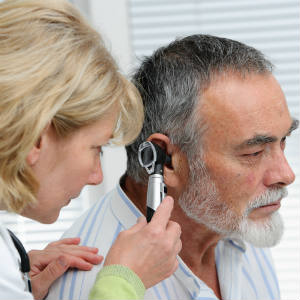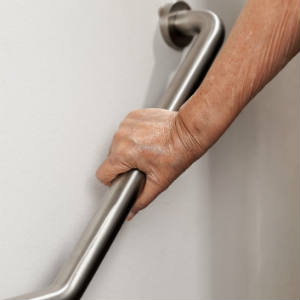Get regular exercise,be aware of medication side effects, wear proper footwear,make sure your home is free of clutter and tripping hazards. You’ve likely heard most or all of these tips to help prevent falls.
However, there’s another fall risk factor you may not be aware of — hearing loss. Here’s what you should know about hearing loss and falls.
Is there a link between hearing loss and falls?
According to medical professionals and researchers at Johns Hopkins Medicine, there is. They found that even people with mild hearing loss are three times more likely to fall than those without hearing loss.
Why is this? Researchers say if your hearing is less than optimal, you may not have a good awareness of your environment, which can make tripping and falling more likely. Another issue that comes with hearing loss is cognitive load, which means if you have hearing loss, your cognitive abilities are more focused on trying to hear instead of on gait and balance.
Reduce your risk of falls
If hearing loss increases or your risk for falls, then it stands to reason that improving hearing reduces that risk. A study at the Washington University School of Medicine found that older adults with hearing loss who had hearing aids in both ears did better on standard balance tests.
Study authors propose that improving hearing in older adults either through hearing aids or cochlear implants could help reduce falls.
Interestingly, it’s not that improving hearing makes someone more alert, study authors say. Hearing aid wearers appear to be using sound to reference points or landmarks to help maintain balance.
Help reduce your risk of falls by:
- Getting your hearing tested. These diagnostics test how well you can hear through your inner ear and ear canal and can determine what kind of hearing loss you have.
- Getting regular exercise. If don’t exercise regularly, ask you doctor before you begin an exercise program. Once you begin exercising, incorporate strength and flexibility training like yoga or tai chi into your routine.
- Reviewing your medications. Talk with your doctor or pharmacist about any side effects your medications are causing you. When you receive a new medication, ask about what side effects you should be alert for.
- Getting your vision checked. Just as hearing impairment can impact your risk for falls, so can vision issues. Have an eye exam at least once per year.
- Checking your home. Ensure your home is free of clutter and tripping hazards like loose rugs and cords.
If you have concerns about falling or your hearing, talk to your doctor.













